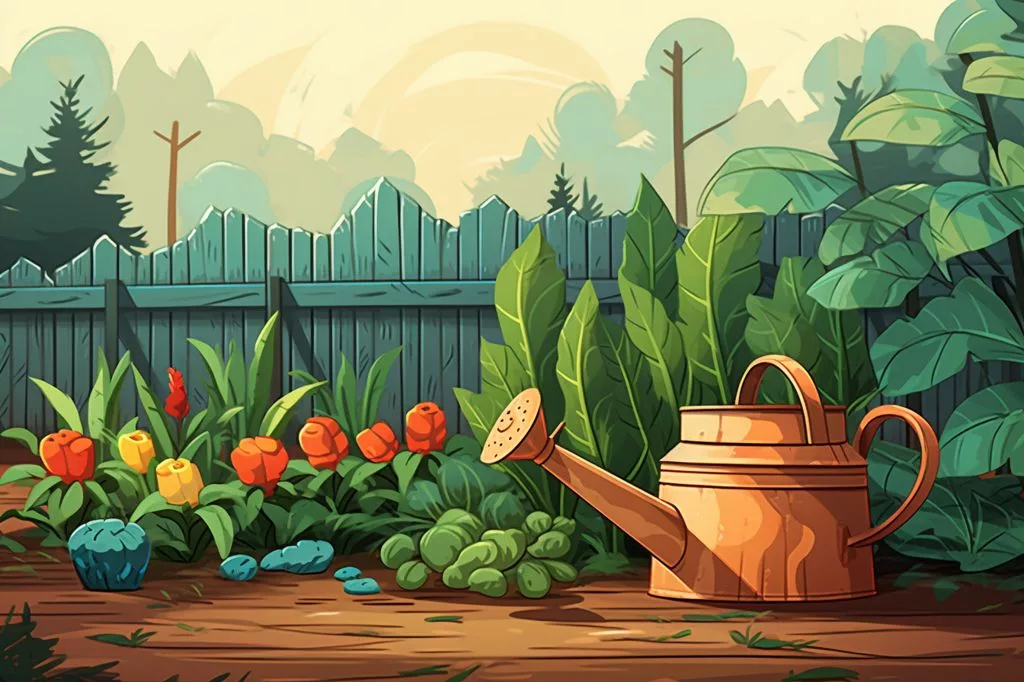The Western Cape Government in South Africa celebrated World Food Day by promoting sustainable food security and encouraging households to create their vegetable gardens through the One Home, One Garden Initiative. The program provides resources, training, and support to households to start and maintain their gardens, enhancing access to affordable, nutritious food. In addition, the government supported poultry production training for seven households and implemented four community vegetable gardens. The initiative and community gardens illustrate the power of collaboration and grassroots action in contributing to a food-secure future.
What is the One Home, One Garden Initiative?
The One Home, One Garden Initiative is a program by the Western Cape Department of Agriculture that promotes sustainable food security by encouraging households to create their vegetable gardens. The initiative provides resources, training, and support to households to start and maintain their gardens, enhancing access to affordable, nutritious food.
Tackling Food Insecurity with the One Home, One Garden Initiative
As global food security and clean water access remain urgent issues, the Western Cape government has stepped up to confront these challenges. On October 6th, 2023, Western Cape Minister of Agriculture Dr. Ivan Meyer initiated Food Security Month, culminating in a World Food Day event at Kranshoek in Plettenberg Bay. World Food Day itself marks the establishment of the United Nations’ Food and Agriculture Organization (FAO) and is observed annually on October 16th. This year’s theme, “Water is Food, Water is Life ‘Leave No One Behind'”, underscores the significance of addressing water scarcity and its effects on food production and availability.
Throughout Food Security Month, the Western Cape Government has made a deliberate effort to tackle food insecurity and malnutrition directly. Dr. Meyer stressed the value of strategic partnerships and initiatives at both the community and household levels to fight food insecurity. One such initiative is the Western Cape Department of Agriculture’s One Home, One Garden program, which seeks to promote sustainable food security by urging households to create their vegetable gardens.
In anticipation of World Food Day, 123 households in Kranshoek, Crags, KwaNokuthula, New Horizon, and Wittedrift benefited from the One Home, One Garden Initiative. By providing households with the necessary resources to start vegetable gardens, the initiative fosters self-reliance and enhances access to affordable, nutritious food. The program also offers training on crucial gardening skills such as pest control, disease management, and crop selection, ensuring that recipients can maintain and sustain their gardens successfully.
Expanding Food Security Efforts in the Western Cape
Besides vegetable gardening, the Western Cape Department of Agriculture also supported poultry production training for seven households. Once the current Avian Flu outbreak is resolved, these households will receive ten layer chickens, feed for three months, and a chicken coop or cage to begin their poultry production.
The Western Cape Government has also implemented four community vegetable gardens at Kranshoek Primary School, the Immanuel Church (Crags), and Phakamisani Primary School in KwaNokuthula. These gardens provide essential infrastructure, production inputs, gardening equipment, and advisory services. Consequently, the community gardens benefit not only the participating households but also serve as educational resources for local schools and communities.
To further bolster food security efforts, the Western Cape Department of Agriculture mobilized donations for a “Food Mountain,” benefiting five local non-governmental and nonprofit organizations. Preference was given to organizations supporting children, women, youth, the elderly, and people living with disabilities.
Emphasizing Water Management and Sustainable Practices for Food Security
Dr. Meyer urged citizens to start their household gardens as a means of combating hunger and producing fresh, nutritious food. He also highlighted the importance of responsible water resource management for sustaining food gardens. By collecting rainwater for food gardens, households can decrease their reliance on municipal water supplies, further supporting the goals of the One Home, One Garden initiative.
As the Western Cape Government and its partners continue to address food insecurity, the One Home, One Garden initiative and the community gardens illustrate the power of collaboration and grassroots action. By empowering households and communities to grow their food, these programs contribute to a more sustainable and food-secure future.
In summary, the World Food Day celebrations in the Western Cape emphasize the critical role that water plays in food production and security. Through initiatives like the One Home, One Garden program and the implementation of community vegetable gardens, the Western Cape Government is taking significant steps to address the challenges of food insecurity and malnutrition. As more households embrace these initiatives and adopt sustainable practices, the region moves closer to a future free of hunger and full of promise.
1. What is the One Home, One Garden Initiative?
The One Home, One Garden Initiative is a program by the Western Cape Department of Agriculture that promotes sustainable food security by encouraging households to create their vegetable gardens. The initiative provides resources, training, and support to households to start and maintain their gardens, enhancing access to affordable, nutritious food.
2. What is Food Security Month?
Food Security Month is an initiative by the Western Cape Government to tackle food insecurity and malnutrition directly. It was initiated by Western Cape Minister of Agriculture Dr. Ivan Meyer and culminated in a World Food Day event at Kranshoek in Plettenberg Bay. The month-long initiative seeks to promote strategic partnerships and initiatives at both the community and household levels to fight food insecurity.
3. When is World Food Day celebrated?
World Food Day is observed annually on October 16th. It marks the establishment of the United Nations’ Food and Agriculture Organization (FAO).
4. What was the theme for this year’s World Food Day?
The theme for this year’s World Food Day was “Water is Food, Water is Life ‘Leave No One Behind'”. It underscored the significance of addressing water scarcity and its effects on food production and availability.
5. How did the One Home, One Garden Initiative benefit households in Kranshoek, Crags, KwaNokuthula, New Horizon, and Wittedrift?
123 households in Kranshoek, Crags, KwaNokuthula, New Horizon, and Wittedrift benefited from the One Home, One Garden Initiative. By providing households with the necessary resources to start vegetable gardens, the initiative fosters self-reliance and enhances access to affordable, nutritious food. The program also offers training on crucial gardening skills such as pest control, disease management, and crop selection, ensuring that recipients can maintain and sustain their gardens successfully.
6. What other initiatives did the Western Cape Department of Agriculture support besides vegetable gardening?
Besides vegetable gardening, the Western Cape Department of Agriculture also supported poultry production training for seven households. Once the current Avian Flu outbreak is resolved, these households will receive ten layer chickens, feed for three months, and a chicken coop or cage to begin their poultry production. Additionally, the government implemented four community vegetable gardens at Kranshoek Primary School, the Immanuel Church (Crags), and Phakamisani Primary School in KwaNokuthula.
7. How did the Western Cape Government support non-governmental and nonprofit organizations during Food Security Month?
To further bolster food security efforts, the Western Cape Department of Agriculture mobilized donations for a “Food Mountain,” benefiting five local non-governmental and nonprofit organizations. Preference was given to organizations supporting children, women, youth, the elderly, and people living with disabilities.
8. What did Dr. Meyer emphasize regarding water management and sustainable practices during the World Food Day celebrations?
Dr. Meyer emphasized the importance of responsible water resource management for sustaining food gardens. By collecting rainwater for food gardens, households can decrease their reliance on municipal water supplies, further supporting the goals of the One Home, One Garden initiative. He urged citizens to start their household gardens as a means of combating hunger and producing fresh, nutritious food.








